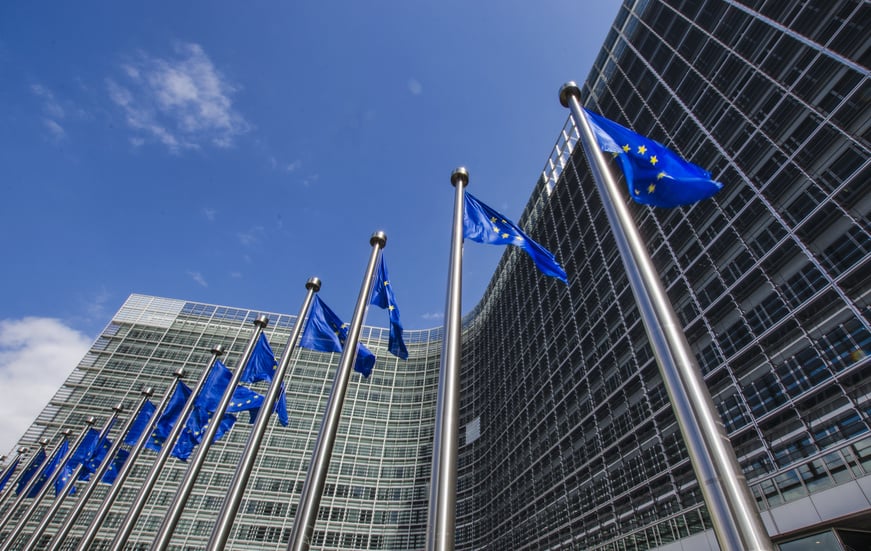On June 8, 2017, twenty EU Member States reached an agreement on the implementation of the European Public Prosecutor’s Office (EPPO), a new European institution that aims to facilitate the prosecution and investigation of crimes against the EU budget.[1] The proposal of establishing the European Public Prosecutor’s Office was introduced on July 17, 2013 by the European Commission pursuant to Article 86 of the Treaty on the Functioning of the European Union (TFEU) that explicitly provides for the adoption of this institution.[2]
The EPPO will operate as a single and independent prosecution office, bringing into justice crimes such as fraud concerning EU funds of over €10,000 as well as complex cross-border VAT fraud cases, involving damages above €10 million. In order to streamline this procedure, the European Public Prosecutor’s Office will combine European and national law enforcement efforts. The European Union has already introduced institutions that address financial offenses such as OLAF (EU Anti-Fraud Office) and Eurojust. However, these bodies lack the ability to conduct criminal investigations or prosecute fraud cases.[3] Therefore, the EPPO will have a complementary role filling in this institutional gap.
The Office will be divided in a central and decentralized (national) division. The central division will consist of the European Chief Prosecutor, 20 European Prosecutors, two of whom will be Deputies of the European Chief Prosecutor, as well as technical and investigative staff. The decentralized division will consist of European Delegated Prosecutors located in each participating Member State who will carry out the investigations and prosecution. The work of the European Delegated Prosecutors will be supervised by the European Chief Prosecutor in order to ensure coherence and efficiency. Wearing a “double hat”, the European Delegated Prosecutors will maintain their competence as national prosecutors but during their work under the instructions of EPPO, they will act independently from the national prosecution authorities.
As the European Commission explained, the EPPO will draw attention on the Member States’ capacities and will pool expertise in areas such as crime analysis, tax, accounting or IT, ensuring smooth communication channels without any language barriers. The investigations will be conducted in a coordinated manner, rapidly exchanging information and joining efforts to ensure coordinated actions such as fast freezing or seizure of assets. When deemed necessary, the EPPO may request the arrest of the suspected criminals. These requests will be authorized by the competent national judicial authorities according to national law. Procedural rights of the suspects will be safeguarded according to European and national legislation. Each suspect will be able to exercise its rights in line with the Charter of Fundamental Rights of the European Union as well as with the defence rights the national law prescribes.
The Member States that have so far agreed to implement the EPPO are: Austria, Belgium, Bulgaria, Croatia, Cyprus, Czech Republic, Estonia, Finland, France, Germany, Greece, Italy, Latvia, Lithuania, Luxembourg, Portugal, Romania, Slovakia, Spain and Slovenia. The non-participating Member States can join at any time after the adoption of the Regulation. Following the decision made on June 8, 2017, the European Parliament has to give its consent. It is envisaged that the set-up phase of the institution will take two to three years. Consequently, the European Public Prosecutor’s Office could start its activity between 2020 and 2021.
The lack of unanimous adoption hints to the controversy surrounding the implementation of the EPPO, since the interaction between European and national law might be problematic-especially in the “sensitive” area of criminal law. Bearing that in mind, the efficiency of the new institution will be evaluated in practice as soon as it starts operating.
[1] For more information, see in general the European Commission’s Fact Sheet regarding the EPPO Office issued on June 8, 2017(http://europa.eu/rapid/press-release_IP-17-1550_en.htm). See also http://europa.eu/rapid/press-release_IP-17-1550_en.htm European Commission Press Release
[2] Proposal for a Council Regulation on the establishment of the European Public Prosecutor’s Office, COM(2013) 534 final, 17 July 2013.
[3] European Commission’s Fact Sheet regarding the EPPO Office issued on June 8, 2017(http://europa.eu/rapid/press-release_IP-17-1550_en.htm)



